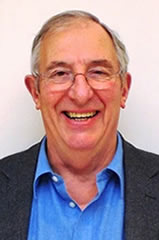Peter Honey
 Action learning - it just feels right
Action learning - it just feels right
When, a long time ago, I started out as a trainer, I used to think that there were some enduring truths; things that were quite simply right in all circumstances and for everyone. Then, as I grew older and more experienced, I started to realise that just about everything could be right in certain circumstances and absolutely wrong in others. In other words, I slowly realised that there is a time and place for everything and that the trick is to know the available options and how to decide when it is appropriate to use which.
There are, however, a couple of exceptions – things that seem to me to be ‘right’ all the time. They are; the learning cycle and action learning.
The stages in the learning cycle are, for me, an enduring truth. Experiential learning (i.e. the sort we do all the time, often without even realising it) is at its best when we complete all the stages in the learning cycle. Taking short cuts, tempting though it is because of learning style preferences, diminishes the learning. How could anyone find fault with the wisdom of reflecting on an experience, teasing out some lessons learned and working out how to action them? There are people (of course!) who are snooty about the learning cycle and attack it for being too simplistic, too obvious, too inflexible, too much like learning-by-numbers and so on. But it survives because, I believe, it is describing a fundamental truth.
The learning cycle and action learning are close buddies, enjoying total rapport. I was fortunate to know the late Reg Revans, the creator of action learning, and whenever I listened to him talking about it, I used to think to myself, ‘He’s absolutely right’. The simple idea of gathering together people who have a vested interest in solving a problem (not a puzzle, that’s too easy) and letting them tap into each other’s experience to find, and implement, a practical solution, made such sense that I could never understand why anyone did anything else. It was a process that succeeded in bringing together two essentials in life; learning and action.
Of course, Reg Revans ran into opposition from academics and ‘experts’ who were threatened by the way he downgraded the role of pedalled knowledge and ready-made answers. Instead, he placed the emphasis on small groups of people, with a mix of experiences and skills, coming together to solve problems by asking questions and tracking down their own answers. This placed the business of asking insightful questions firmly in the driving seat with knowledge (Revans called it ‘programmed knowledge’) becoming a compliant passenger. This challenged the widespread assumption that, if you have a problem to solve - particularly a big one that really matters – you’d best consult the experts who can provide you with the answer. Little wonder that Reg Revans stirred up such fierce opposition. Action learning dared to question the usefulness of nearly every academic institution in the country!
With my self-confessed besottedness for experiential learning and action learning (the same thing really), you can perhaps imagine my delight when I heard about the work of GULL – the Global University for Lifelong Learning. Here is a newly created, not-for-profit organisation (formally launched in October 2007) that is dedicated to providing action learning opportunities for people in communities underserved by traditional approaches to academic education and workplace training.
GULL has already taken off in Papua New Guinea and Malaysia, with hearty endorsements at Government level, and backing from the World Bank is imminent.
Dr Richard Teare is GULL’s president. Here is what he has to say about the philosophy of this unique university: ‘Nothing is more powerful than people working together to better themselves, solve problems and create stronger societies for their families and future generations. Typically, action learning occurs when people learn from each other, create their own resources, identify their own problems and form their own solutions. The approach I use involves light touch facilitation (but no teaching and no curriculum). At GULL, we view every learner as an expert in their own learning and our challenge is to guide them in the action learning process – without getting in the way’.
GULL is the one to watch. Find out about their work at www.gullonline.org
About the author:
Dr. Peter Honey is regarded as one of the world’s leading gurus on learning and behaviour (although he believes that a learning guru is a contradiction in terms – as it suggests knowing everything there is to know about learning!). He is founder of Peter Honey Publications Ltd. www.peterhoney.com a prolific author, consultant and speaker.